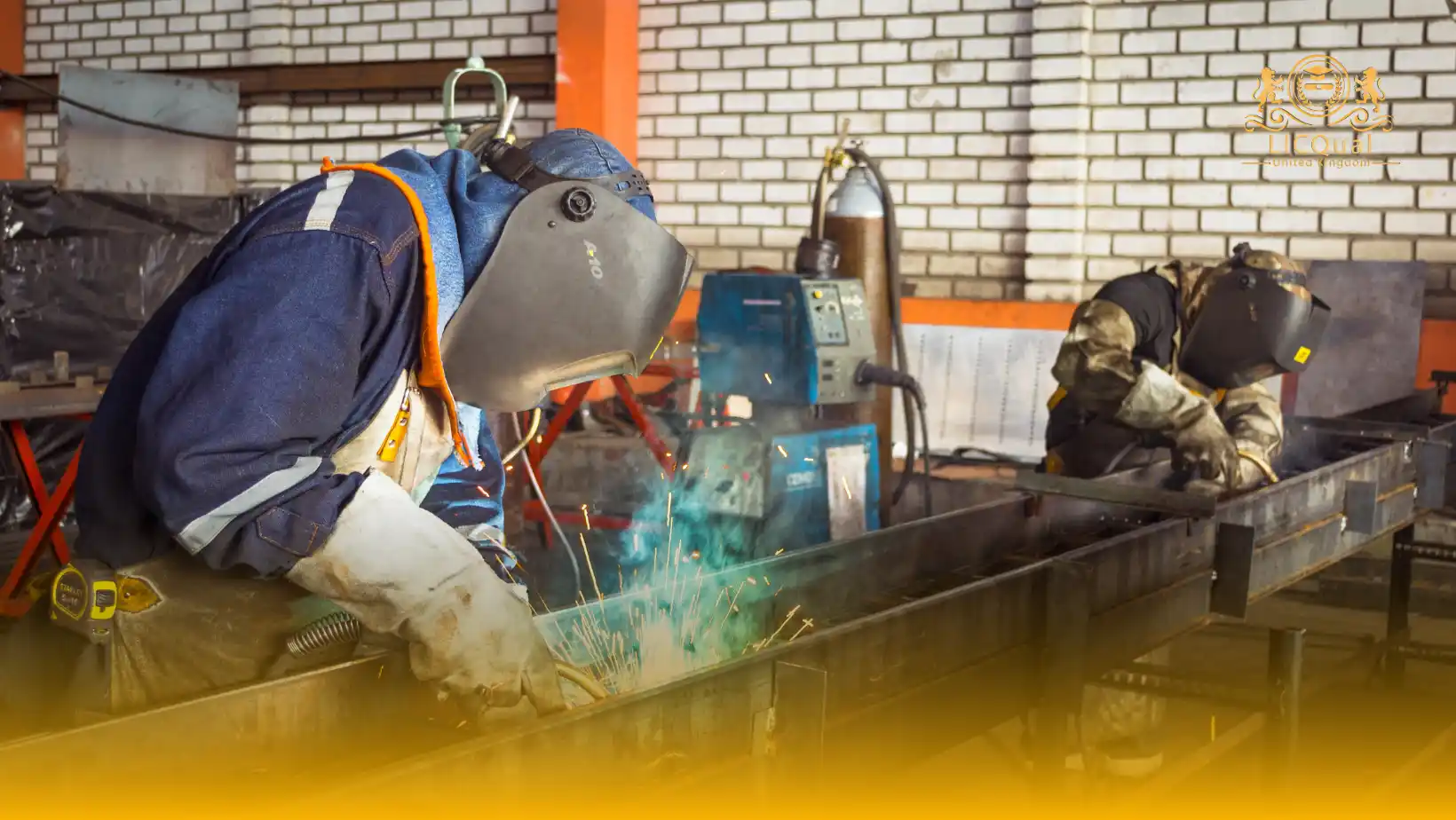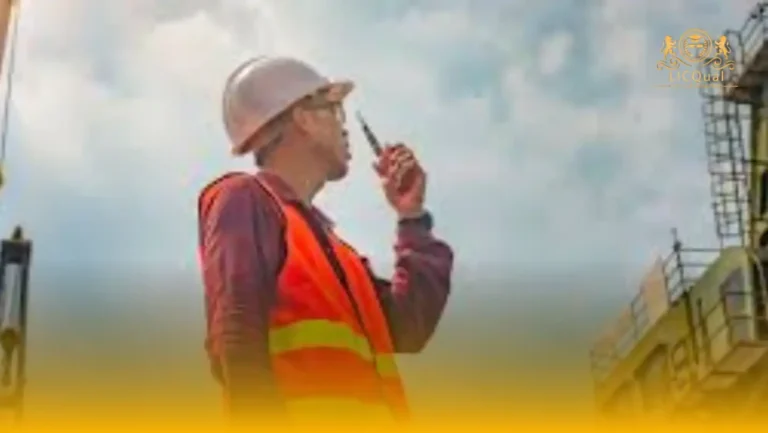The LICQual Level 6 Diploma in QA/QC Piping and Welding Inspector is a globally recognized qualification designed to equip experienced professionals with advanced expertise in quality assurance, quality control, and inspection techniques specific to piping and welding operations. Developed in line with international industry standards, this diploma provides the critical knowledge and practical skills required to supervise and implement QA/QC procedures in complex engineering environments such as oil & gas, petrochemical plants, refineries, power plants, and large-scale construction projects.
This comprehensive program covers advanced QA/QC methodologies, interpretation of international welding codes and piping standards (such as ASME, API, and ISO), inspection techniques, non-destructive testing (NDT), and quality documentation management. The course is ideal for professionals aiming to progress into senior QA/QC roles or consultancy positions within piping and welding industries.
By earning the LICQual Level 6 Diploma, learners demonstrate their capability to oversee welding and piping inspections, ensure compliance with global standards, and lead quality assurance initiatives on high-value projects. The curriculum is developed to align with employer expectations and industry demands, ensuring graduates are job-ready and equipped with the credentials needed for international opportunities.
Whether you are a seasoned engineer, NDT technician, or QA/QC inspector looking to elevate your career, this diploma offers the advanced qualification you need to take the next step. Enroll today and build a future in one of the most sought-after technical disciplines in the global engineering sector.
Course Overview
Qualification Title
LICQual Level 6 Diploma in QA/QC Piping and Welding Inspector
Total Units
6
Total Credits
120
GLH
480
Qualification #
LICQ2200554
Qualification Specification
To enroll in the LICQual Level 6 Diploma in QA/QC Piping Inspector applicants must meet the following criteria:
|
Qualification# |
Unit Title |
Credits |
GLH |
|---|---|---|---|
|
LICQ2200554-1 |
Advanced Principles of QA and QC in Engineering |
20 |
80 |
|
LICQ2200554-2 |
International Codes and Standards for Piping and Welding |
20 |
80 |
|
LICQ2200554-3 |
Welding Metallurgy and Inspection Techniques |
20 |
80 |
|
LICQ2200554-4 |
Piping Systems Design, Fabrication, and Inspection |
20 |
80 |
|
LICQ2200554-5 |
Advanced NDT Methods and Applications |
20 |
80 |
|
LICQ2200554-6 |
Project Quality Planning and Risk-Based Inspection |
20 |
80 |
By the end of this course, applicants will be able to:
1. Advanced Principles of QA and QC in Engineering
Upon successful completion of this unit, learners will be able to:
- Explain the concepts and strategic importance of Quality Assurance (QA) and Quality Control (QC) in engineering environments.
- Develop and implement advanced QA/QC frameworks in engineering projects.
- Evaluate quality systems in accordance with ISO 9001 and other quality management standards.
- Identify and mitigate risks associated with quality failures.
2. International Codes and Standards for Piping and Welding
Upon successful completion of this unit, learners will be able to:
- Interpret and apply major international codes and standards such as ASME, API, ISO, and AWS.
- Evaluate the compliance requirements of piping and welding procedures with international norms.
- Ensure documentation and inspection procedures align with regulatory and client standards.
- Distinguish between various standard specifications for materials, fabrication, and testing.
3. Welding Metallurgy and Inspection Techniques
Upon successful completion of this unit, learners will be able to:
- Understand the metallurgical principles affecting weld quality and performance.
- Identify welding defects and their causes using appropriate inspection techniques.
- Assess the influence of heat treatment and weld microstructure on mechanical properties.
- Apply knowledge of materials science to solve welding-related quality issues.
4. Piping Systems Design, Fabrication, and Inspection
Upon successful completion of this unit, learners will be able to:
- Interpret piping design drawings, P&IDs, and isometric diagrams.
- Analyze the fabrication process of piping systems including cutting, bending, welding, and testing.
- Conduct inspections of piping systems in accordance with industry standards.
- Apply dimensional and visual inspection criteria to fabricated piping systems.
5. Advanced NDT Methods and Applications
Upon successful completion of this unit, learners will be able to:
- Demonstrate understanding of advanced NDT techniques such as RT, UT, MT, PT, and phased array.
- Select appropriate NDT methods based on material, defect type, and inspection conditions.
- Evaluate and interpret NDT reports to support quality control decisions.
- Ensure NDT procedures meet international safety and compliance standards.
6. Project Quality Planning and Risk-Based Inspection (RBI)
Upon successful completion of this unit, learners will be able to:
- Develop a comprehensive project quality plan (PQP) including ITPs and QCPs.
- Apply risk-based inspection principles to prioritize inspection activities.
- Assess project risks and develop mitigation strategies aligned with quality objectives.
- Coordinate with multidisciplinary teams to implement and monitor quality planning tools.
The LICQual Level 6 Diploma in QA/QC Piping and Welding Inspector is ideal for professionals and aspiring experts seeking advanced knowledge and leadership roles in quality assurance and control within the engineering, piping, and welding sectors. This course is particularly suitable for:
- Experienced QA/QC professionals aiming to enhance their credentials and move into senior-level roles.
- Mechanical, piping, and welding engineers who wish to specialize in quality control and inspection in compliance with international standards.
- Welding inspectors and NDT technicians looking to upgrade their qualifications and expand their career scope.
- Engineering project managers and supervisors responsible for ensuring compliance with quality plans, codes, and specifications.
- Technical diploma or degree holders in mechanical, petroleum, or industrial engineering who want to enter the oil & gas, power generation, or construction industries.
- Professionals working in fabrication yards, EPC companies, or inspection agencies looking for a globally recognized qualification.
This diploma equips learners with the advanced skills needed to lead QA/QC teams, manage inspection protocols, and ensure the highest quality standards in complex engineering projects.
Assessment and Verification
All units within this qualification are subject to internal assessment by the approved centre and external verification by LICQual. The qualification follows a criterion-referenced assessment approach, ensuring that learners meet all specified learning outcomes.
To achieve a ‘Pass’ in any unit, learners must provide valid, sufficient, and authentic evidence demonstrating their attainment of all learning outcomes and compliance with the prescribed assessment criteria. The Assessor is responsible for evaluating the evidence and determining whether the learner has successfully met the required standards.
Assessors must maintain a clear and comprehensive audit trail, documenting the basis for their assessment decisions to ensure transparency, consistency, and compliance with quality assurance requirements.







